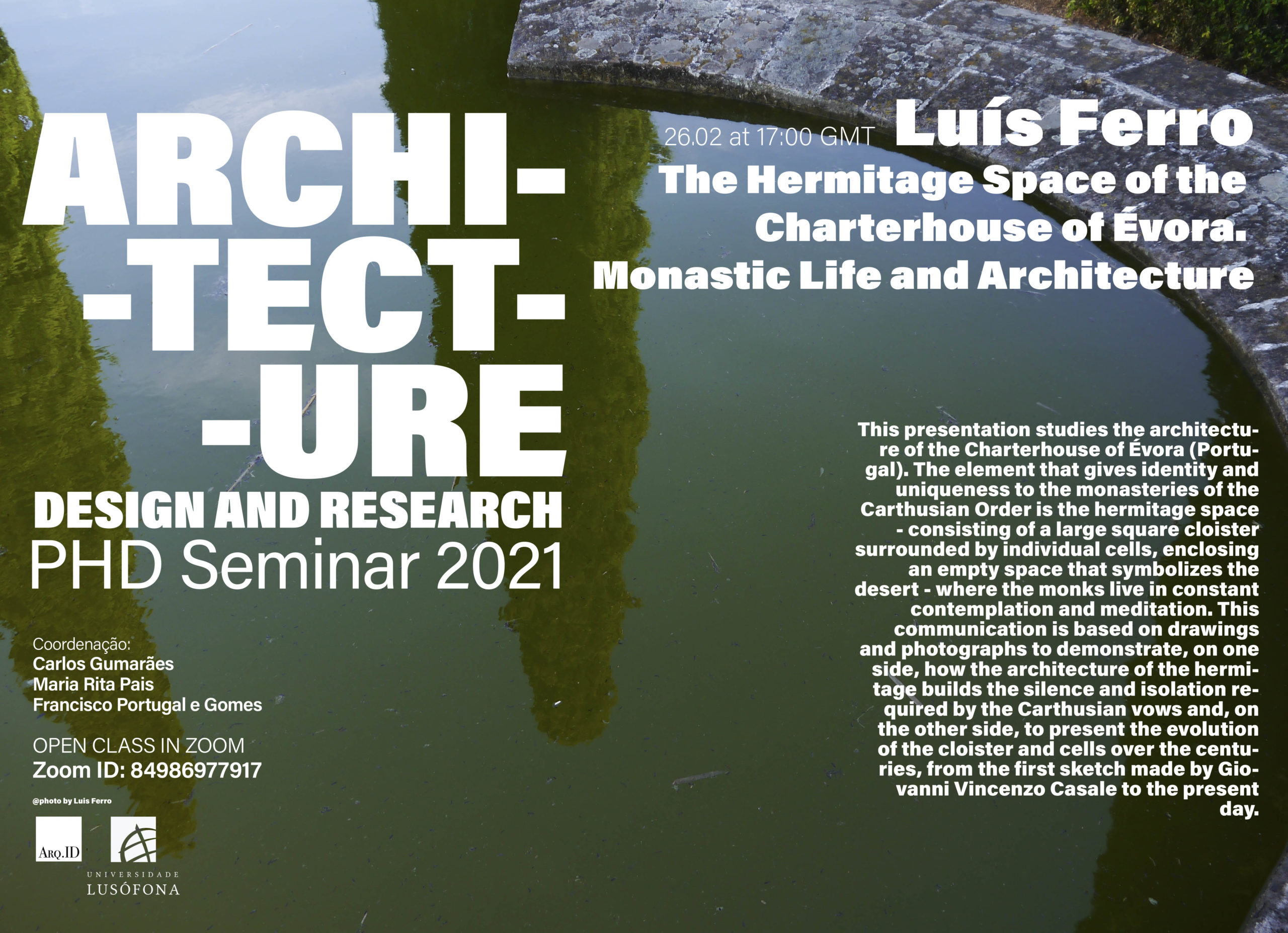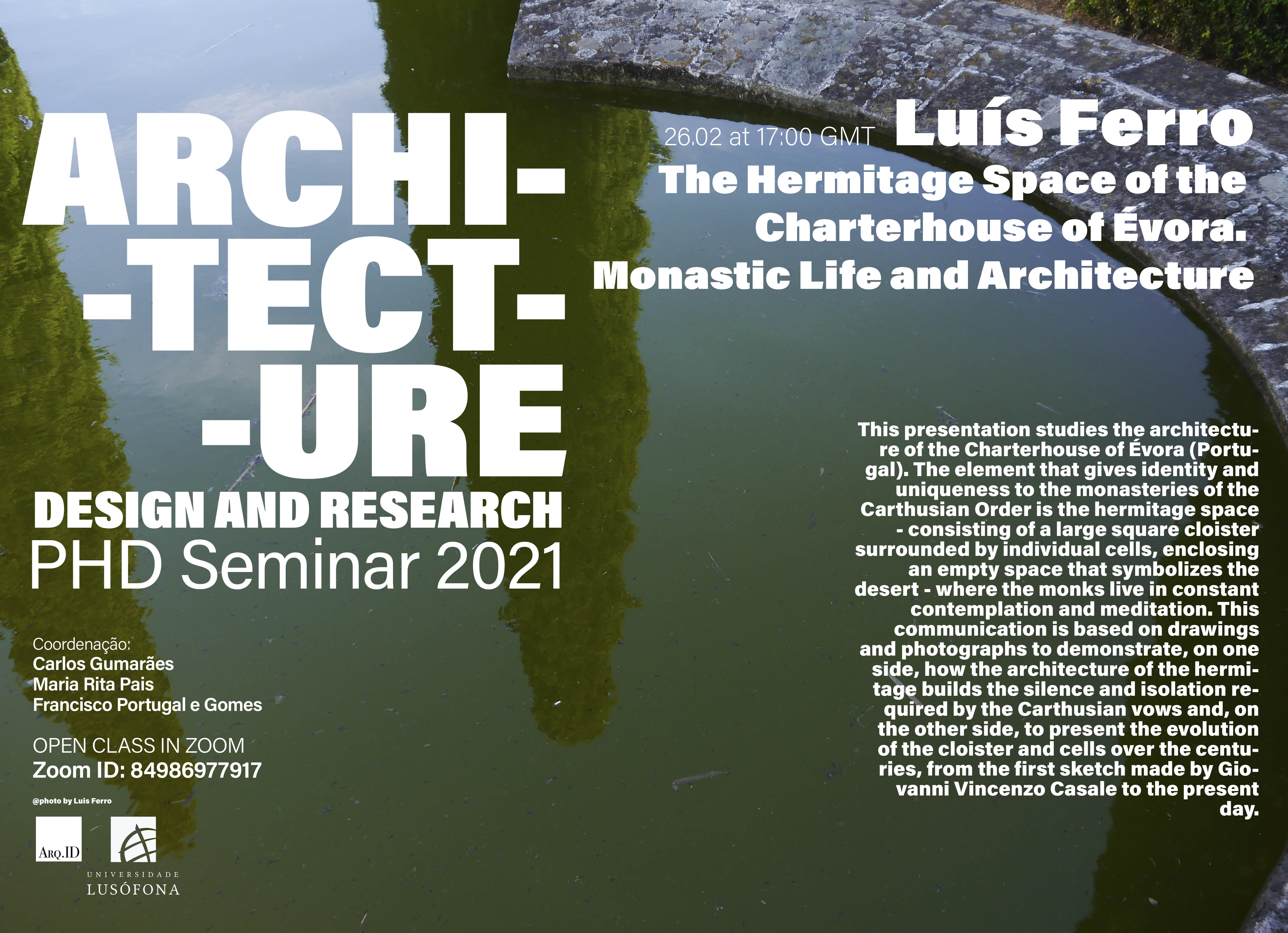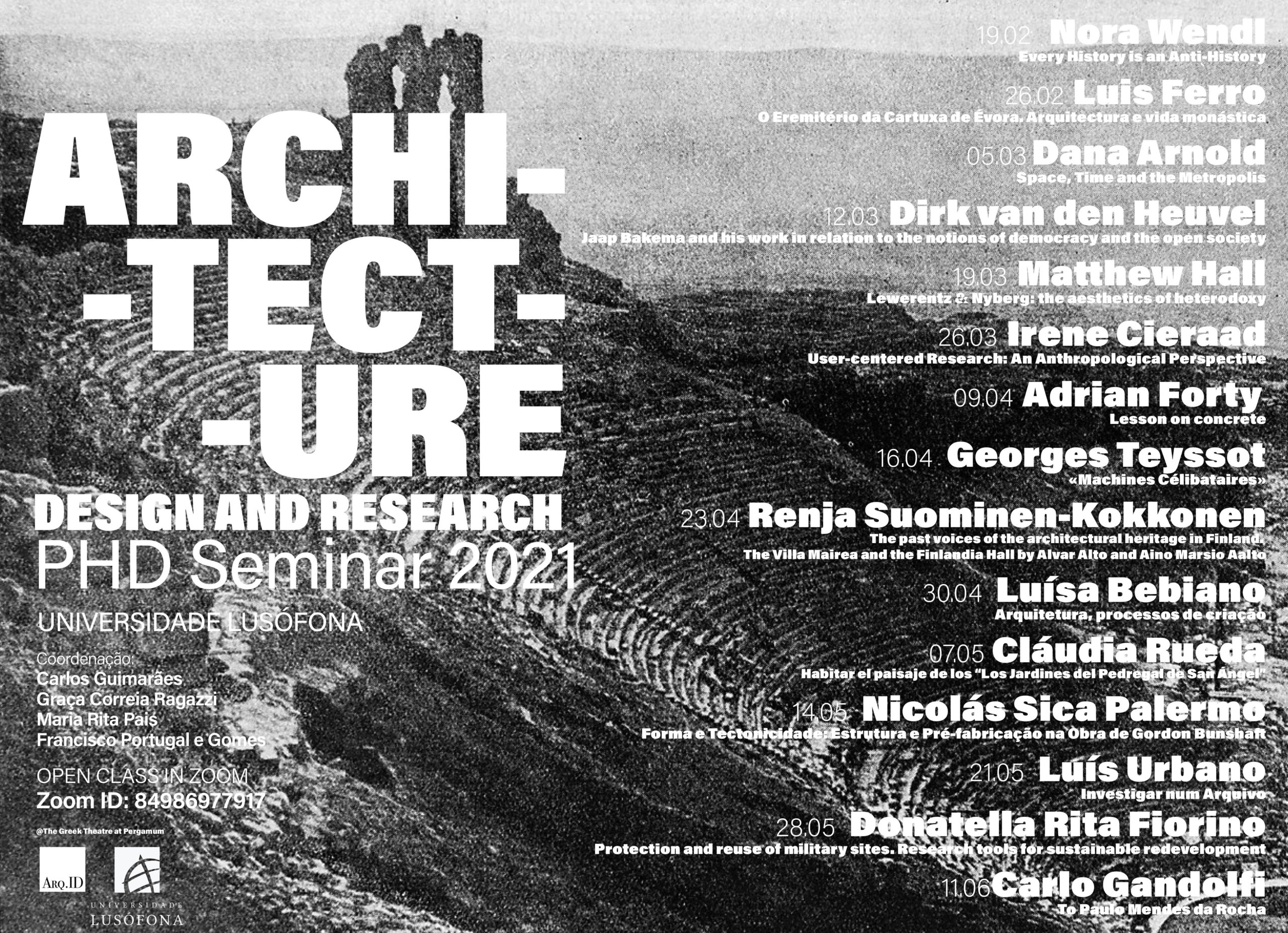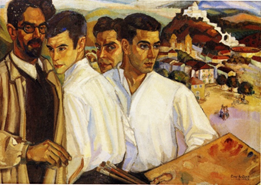
PhD Seminar: Luís Ferro – “The Hermitage Space of the Charterhouse of Évora. Monastic Life and Architecture”

The Architecture Departments of Lusófona University of Lisbon and Oporto are organizing a seminar – Architecture: Design and Research – for the current academic year.
This week
Luis Ferro – The Hermitage Space of the Charterhouse of Évora. Monastic Life and Architecture
26 February 2021,
17:00 (GMT)
We invite you to participate:
Zoom (class): https://videoconf-colibri.zoom.us/j/84986977917
Synopsis
This presentation studies the architecture of the Charterhouse of Évora (Portugal). The element that gives identity and uniqueness to the monasteries of the Carthusian Order is the hermitage space – consisting of a large square cloister surrounded by individual cells, enclosing an empty space that symbolizes the desert – where the monks live in constant contemplation and meditation. This communication is based on drawings and photographs to demonstrate, on one side, how the architecture of the hermitage builds the silence and isolation required by the Carthusian vows and, on the other side, to present the evolution of the cloister and cells over the centuries, from the first sketch made by Giovanni Vincenzo Casale to the present day.
Biographical Note
Luís Ferro is an architect based in Évora, Portugal, where he practises his professional activities since 2012. He is a PhD student of FAUP, and has an M.A. from the University of Évora (2010), having been an Erasmus student in Yildiz Teknik Üniversitesi in Istanbul. Between 2013 and 2015, was as Assistant Professor in the Department of Architecture from the University of Évora, and, between 2015 and 2016, was the coordinator of the project entitled «Sacred Places: Cubas from the Kûra of Beja» (Calouste Gulbenkian Foundation, n.139754). Currently, he is a Researcher at CHAIA/UÉ and CEAUP/FAUP.
He has published several papers and has presented communications in Portugal, Spain, France, England, Finland and USA, having been awarded with the «Prémio Estágios em Portugal e no Mundo» (Portuguese Order of Architects) in 2014 and the «Prémio Arquitetos Agora 2016» (Portuguese Order of Architects). In 2019, he has published the book entitled «O Eremitério da Cartuxa de Évora: Arquitectura e Vida Monástica» (ISBN: 978-989-54274-1-3), that was awarded with the Prémio Frei Bernardo Domingues, O.P. 2019 (Cultural Institute D. António Ferreira Gomes).












